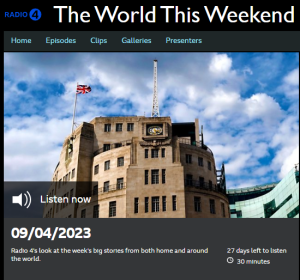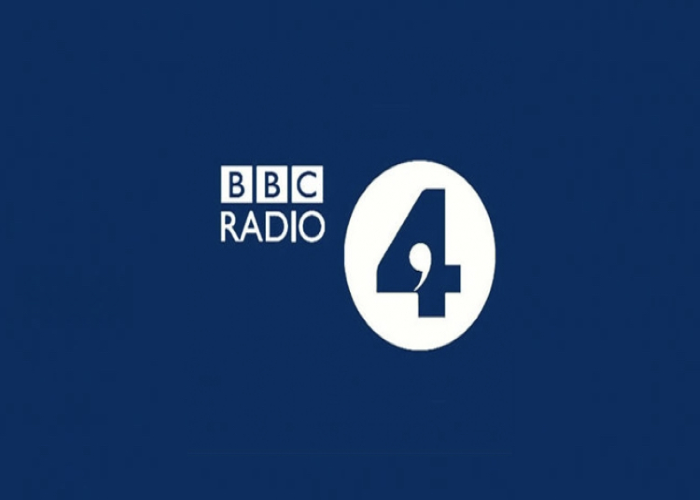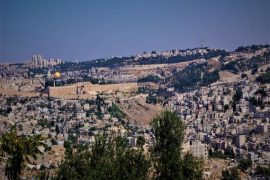Back in April we documented an edition of the BBC Radio 4 programme ‘The World This Weekend’ in which listeners heard a Jordanian interviewee claim that “even before 1967 Jordan respected the rights of Jews to go and come to their holy places”. That entirely false claim went without any challenge whatsoever from presenter Jonny Dymond.
JORDANIAN DISINFORMATION GOES UNCHALLENGED ON BBC RADIO 4
CAMERA UK submitted a complaint to the BBC, requesting the correction of that disinformation and pointing out that:
“Not only did Jordan not ‘respect’ the rights of Jews during its illegal occupation of parts of Jerusalem between 1948 and 1967, it destroyed dozens of synagogues and desecrated the ancient Mount of Olives cemetery. In direct contravention of the 1949 armistice agreements, Jordan did not permit Jews access to their holy sites or to the Jewish cemetery on the Mount of Olives during that period and, notably, Israeli Arabs, were also denied access to the Al Aqsa mosque on Temple Mount.”
On April 26th we were informed that it would take more time to address our obviously straightforward complaint. On May 17th we received another e-mail from the BBC stating that the time frame for the handling of the complaint had expired.
On June 8th we received the following:
“Thanks for contacting us about The World this Weekend, broadcast on 9 April. We apologise for our delayed response. We have shared your concerns with the senior editorial team at the programme.
The focus of this interview was the flashpoints which had occurred in the preceding days in the area around Al Aqsa mosque, and generally across Israel and the Occupied Palestinian territories, and the response of Jordan and other countries in the region. While we accept the point made may well be contentious, presenters don’t always have the time to try to challenge every point made, or give a wider or opposing viewpoint. This is a complex area about which interviewees often seek to make a variety of historical references to back up their positions and we can’t always examine every point in the time available where it is not central to the subject at hand.”
The introduction to the BBC editorial guidelines on accuracy includes the following:
“The BBC must not knowingly and materially mislead its audiences. We should not distort known facts, present invented material as fact or otherwise undermine our audiences’ trust in our content.
We should normally acknowledge serious factual errors and correct them quickly, clearly and appropriately.”
The section relating to ‘accuracy in live content’ states:
“3.3.7 Achieving due accuracy in live content can be challenging, as there may be little opportunity to verify factual claims. Where practicable, and particularly if an issue is controversial, content makers should take steps to ensure due accuracy.
Where possible, risks should be identified in advance and measures taken to mitigate them. This may include ensuring the appropriate preparation is undertaken so that the content contains sufficient challenge or context; or ensuring other contributors are able to provide additional challenge. Significant inaccuracies that may arise should be corrected quickly.” [emphasis added]
As we recently noted in relation to the launch of yet another BBC anti-disinformation project, it is high time that the corporation acknowledged that fact-checking and tackling disinformation begins at home.
This once again extremely belated and entirely unsatisfactory response to a complaint concerning a straightforward point of accuracy casts serious doubt on the BBC’s commitment to its own declared editorial standards as well as its ability to tackle disinformation.
CAMERA UK has submitted a follow-up complaint on this issue.
Related Articles:






Well I do not expect OFCOM to help much when, (so I have been told) a number of ex BBC employees work there. Another case of the fox guarding the hen house. Let’s be honest if they can find some sort of Palestinian language professor who is prepared to belittle himself by declaring the word ‘Yehud’ does not mean Jew then they can make black seem white and visa versa. The BBC news is now a joke organisation and nobody should be forced to pay a subscription to fund such a racist enterprise. #defundthebbc
Had Israel at any time destroyed Mosques or Muslim burial plots in Jerusalem the BBC would be the first to scream to the world about it and continue to do so to this very day.
What is surprising is the BBC’s ignorance about Jerusalem. Many years ago it was unable to distinguish between the Dome of the Rock and Al Aksa mosques and took them more than six months, yes 6 plus months, to investigate with all their journalists on the ground including the anti Jew Bowen.
BBC constantly distorts the true facts about Israel but strange enough is very careful not to do so about the Arabs- is it fearful of reprisals?